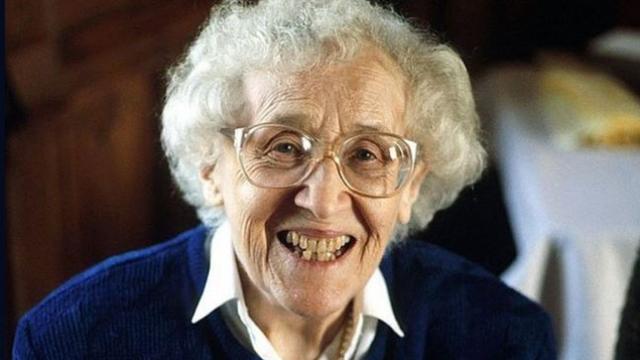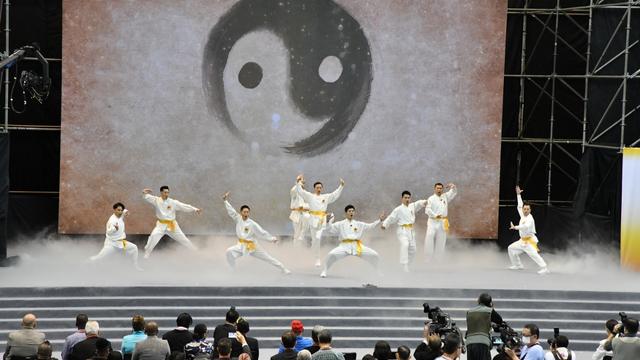A world in peace is a world without violence—and without violence against women. Tai Ji Men dizi know this by experience.
by Marco Respinti*
*Introduction to the webinar “Eradicating Violence Through a World Prayer Day and Solving the Tai Ji Men Case,” co-organized by CESNUR and Human Rights Without Frontiers on November 25, 2022, International Day for the Elimination of Violence Against Women.

Our webinar today, co-organized by the Center for Studies on New Religions and Human Rights Without Frontiers, and entitled “Eradicating Violence Through a World Prayer Day and Solving the Tai Ji Men Case,” is peculiar. The webinars of this precious series on the Tai Ji Men case always occur on a day of observance designated by the United Nations. In fact, today is an important UN day of observance: it is the International Day for the Elimination of Violence Against Women. We celebrate it addressing violence against women of Tai Ji Men, but we also want to underline a second important event. It is the proposal of designating October 16 as World Prayer Day made by Dr. Hong Tao-Tze, the Shifu (Grand Master) of Tai Ji Men.
The two topics go hand in hand. In the intentions of Dr. Hong, a World Prayer Day is the key to a peaceful world. There cannot be such a thing as a peaceful world if violence, and especially that very obnoxious form of violence which is violence against women, is not eradicated.
The anthropological dignity of women
First, women and violence. The most ancient treatise on education in France was written by a woman. Medicine was practiced regularly by women in the 13th century. In the 12th century, there were religious orders gathering both monks and female religious under the authority of an abbess, a woman. Women administrated property, and held top positions in professions and commerce, as well as in the intellectual life and even in politics. Women were writers, educators, rulers of states. Many of them were at the royal courts, sometimes in key positions. In sum, the whole history of law and social customs shows the evolution and the importance of the power of women in all levels of society in the centuries after the year 1000 CE. In fact, women were highly regarded, and consulted for advice because they were considered competent, responsible, and influential.
This is what French historian and archivist Régine Pernoud (1909–1998) documents through tens of examples in her scholarly works, chiefly, but non only, “La Femme au temps des cathédrales,” published in 1980, and translated in English as “Women in the Days of Cathedrals” in 1998.

Pernoud was a specialist of what we call the Middle Ages in Western Europe. So, her description of the social prestige and dignity of women focuses on medieval times. Now, the Middle Ages in Europe were a religious time. Christian culture permeated every aspect of private and public life, from literature to politics, from economics to education. We can then aptly say that the high consideration and respect for women in those times was a product of a religious civilization, deeply rooted in clear theological ground as well as based on a distinctive concept of the human person.
Problems in fact arose when the religious features of Western society started decreasing. Women lost their prominence in society, and discrimination and de-evaluation came rapidly in as a common cultural feature. Violence against women was just behind the corner, prepared and justified by a new anthropology.
Just as secular societies lost the old esteem of women, women were treated badly by those cultures whose anthropology, philosophy, and theology were built upon a profound separation between males and females. Rapidly, women became mere servants or even tools in the hands of men, and men were allowed to make of them whatever they liked.
Forced marriages, servitude, disrespect, sterilization, selective abortion based on sex, rape, mutilations: all forms of violence against women were then tolerated and even promoted. And violence against women has become so serious a problem to push the United Nations to summon the attention of the entire world on a special day like today.
“Anyone who’s listening”
Let me now turn to prayer. The “Mad Max” series is a popular franchise of dystopic movies. The first movie was released in 1979, the latest, entitled “Mad Max: Fury Road,” came out in 2015. In the films, the last humans who remain in a post-apocalyptic world fight for survival against a tyrannical villain and his fanatic warriors. These movies touch upon our two-fold topic of today. The evil warriors are affected by a genetic disease and can live only on the blood they get from the last remaining full humans. Among the last humans, there is a small group of beautiful women, called the Five Wives: they are the spouses of the chief villain but there is no room for love there. They exist only to breed new children, hopefully healthy, to serve in the army of the chief villain and fight a perpetual war for the control of the last natural resources and energy in a wretched world. These women are only “breeders,” and are treated as sexual slaves.

At one stage, the Five Wives manage to escape the tyrant and engage in a hard struggle for survival, protected by the few positive heroes of this story. At the heart of this battle for life, when everything is hard to bear and possibly lost, one of the Five Wives, whose name is “Toast the Knowing,” starts doing strange gestures. One of the other women, whose name is “The Dag,” bewildered, asks her: “What are you doing?” “Praying,” “Toast” replies. “To whom?” asks again “The Dag.” “Anyone who’s listening,” says “Toast.” This is so full of meaning that is even touching.
The 1759 treaty “Del gran mezzo della preghiera,” translated in English as “Prayer: The Great Means of Salvation,” by the Roman Catholic Neapolitan bishop, canonized as a saint, Alphonsus Liguori (1696–1787), is focused on the idea that prayer is necessary for salvation, and that those who do not pray condemn themselves to hell. Of course, these may look like harsh words, but all Christian believers are familiar with the notion. There is a truth in these words that does not depend on the fact that Alphonsus was a Roman Catholic saint. Religionists pray to different gods or beings, but all prayers have something in common. “Anyone who’s listening,” says “The Dag” in “Mad Max.” We, from different religions, all pray to “Anyone who’s listening.” Some religions claim they know the name of the recipient(s) of their prayers. Other spiritual traditions do not name names—but all believers pray because they know how important prayer is.

In his treaty, Liguori added another important element. Prayer is not an end: it is a means to obtain a goal. It is a question put to someone (“Anyone who’s listening”), who may or may not answer. The Latin language has two verbs for “asking”: “quaerere” and “petere.” They are not the same: “quaerere” means “asking to know something,” while “petere” means “asking for something.” Prayer is a form of “petere”: it asks to obtain. To obtain what? Ultimately, it asks to obtain the ultimate goal of life: salvation. Call it, phrase it, frame it as you like, we all agree on its substance. In “Mad Max: Fury Road,” when asked by the principal character, Max Rockatansky, what she is ultimately looking for, Imperator Furiosa, a former villain turned hero who is saving the Five Wives, replies with only one word, which is the key to the whole movie and possibly the entire franchise: “Redemption.”
Salvation and redemption start on this side of heaven, when humans make efforts to build a better world for everyone. We call it a world in peace. Dr. Hong and Tai Ji Men know that a world in peace is a world without violence, especially without violence against the central characters of every civilization: women. Why do they know it? Because Tai Ji Men has experienced violence, and women of Tai Ji Men have experienced violence. Dr. Hong and Tai Ji Men search peace through prayer. Why? Because they know that if you want to get something done, you need to go and ask where you can be answered.
This is why today we propose a World Day of Prayer: as an antidote to violence against women and to every form of violence, including administrative violence against all religions.
Source: Bitter Winter

